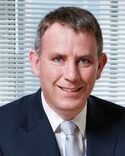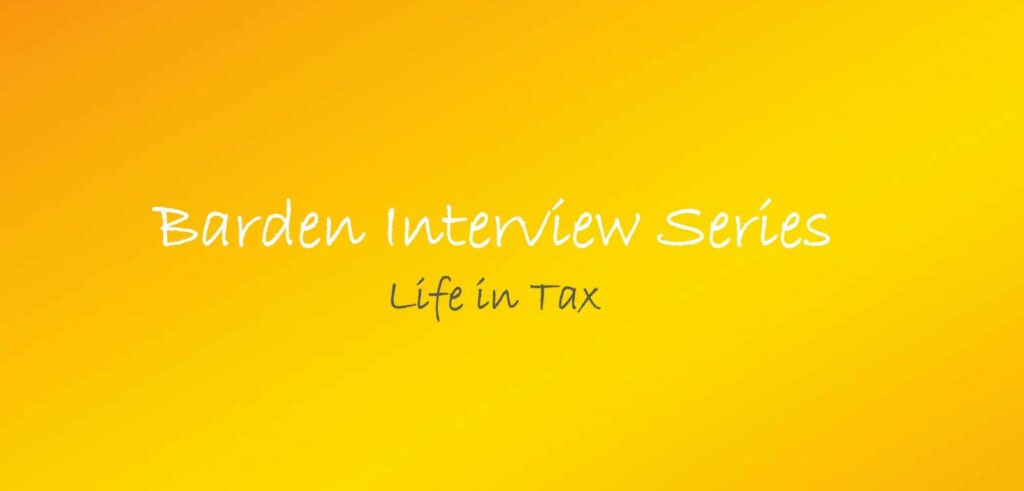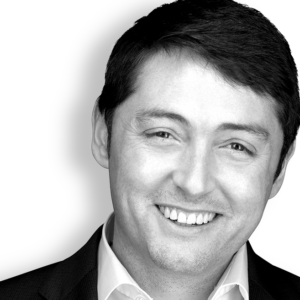Barden’s ‘Life in Tax’ series delves into the diverse worlds of inspiring tax professionals across practice and industry. We explore their career highlights, challenges and aspirations, and share their advice and thoughts on the future skills required for young tax professionals. We hope this series provides useful insights to the Barden Tax Community in Ireland and abroad.
 Barden’s Expert in Tax Careers, Kate Flanagan, catches up with Michael Lynch, Tax Partner in KPMG Cork, as he shares his experience of building his career in tax.
Barden’s Expert in Tax Careers, Kate Flanagan, catches up with Michael Lynch, Tax Partner in KPMG Cork, as he shares his experience of building his career in tax.
1. Tell us a little about your career to date?
Kilkenny born; I started my accounting career in a 1-man practice in Kilkenny way back in 1993! Back then it was slightly different as many trainee accountants started their training contract straight after school and so it was effectively a 7-year contract rather than the 3/3.5-year contracts that exist today.
After placing in my accountancy exams and gaining some exposure to tax, I decided to step up into a larger accountancy practice to ensure I could develop and specialize my career in tax. KPMG was the firm that I chose and I made the move to their tax department in Dublin in 1996. I completed my professional tax exams and progressed quickly to tax manager. My clients were predominantly within the pharma, software, health and infrastructure sectors.
On a personal level, things were changing too as I got married and bought a house in Kilkenny. I was fortunate enough that KPMG were a progressive firm even back then as they afforded me the opportunity to work from home Monday and Friday whilst still basing myself out of Dublin. However, an opportunity came knocking in 2006 to head up the tax practice in KPMG’s Cork office and it was something I knew I couldn’t refuse.
We have grown from a 7 member tax team to over 30 tax professionals through both prosperous and recessionary periods and I am looking forward to being part of the next stage of growth with the firm.
2. How did you decide upon a career in tax?
It was actually during my first position in the small practice in Kilkenny that I decided to pursue a career in tax. We worked with a tax specialist firm on behalf of one of our clients who had developed patented technology. I could see the value add good tax advice could bring to a business. I was genuinely interested in tax and gaining exposure to the approach of a specialist firm was the catalyst for me to do something about it.
3. What accomplishment are you most proud of?
Without question, building the team of people we have in Cork. Although we had good and bad times and had to really ride the storm during the recession, I’m proud to see the tax team we have right now and look forward to the next decade of growth.
4. What has been the greatest challenge (s) in your career and how did you overcome it (them)?
The greatest challenge I have felt in my career was the transition of moving from senior to manager and again from manager to partner. Achieving promotion was obviously a great milestone, and whilst you’re effectively carrying out the role already in terms of responsibilities, no one can really prepare you for the cultural shift that comes with stepping up to manager and partner. You have to suddenly take on new responsibilities, make decisions and step a little away from of a peer group that you associated with for such a long time. Looking back, it was a difficult and challenging time, but I could see the rewards that came with it. Thankfully, KPMG have a lot more support for seniors stepping into management and we are very proud of the huge investment put into providing career development and support to this group of people.
5. What is the most valuable advice that you have been given?
Have a specialization or an area where you are expert in – where you are the go to person. The market increasingly demands deep specialist knowledge. Pick a few areas and really focus on them.
6. What would your advice be to newly qualified tax professionals or those trainees starting out?
Develop your experience in an area you have genuine interest in from both a technical and commercial perspective. Whilst developing your technical expertise and skills, ensure you develop industry knowledge. Read papers, attend briefings, take the initiative and really get to know your industry sector.
7. Practice or industry for a career in tax?
That’s a tough question to answer as it really depends on the person. I have been fortunate enough to develop an excellent career within practice. Regardless of which route you decide to go down, it’s important to firstly figure out if you want to develop your career in tax. If so, my advice would be to stay in practice to experience multiple client scenarios and experience different approaches to such scenarios to allow you to develop your technical skills. Regardless of which route you go down thereafter, you will be well equipped to deal with the tax issues you come across.
8. What do you think could be the future skills required for young tax professionals?
Technology will play a huge part and is likely to be have a disruptive influence on existing norms. It will be important for future tax professional to embrace these disruptive influences, leveraging automation and AI. An ability to interpret complex legislation and explain its implications in a clear and concise manner will continue to be an important skill. A strong work ethic willing to go that little bit extra will bring you a long way.
9. Finally, what is your definition of success or your mantra?
“In the search of excellence, there is no finishing line”


 Jump Back
Jump Back

